Rayting:
7.3/
10 5.8K votes
Language: English | French
Release date: 28 October 1945
In the midst of the Hundred Years' War, the young King Henry V of England embarks on the conquest of France in 1415.
Similar Movies
7.4
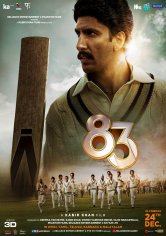
'83 2021
6.9
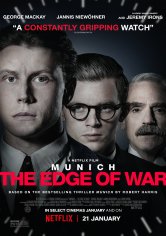
Munich: The Edge of War 2021
6.6
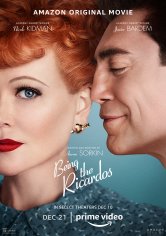
Being the Ricardos 2021
6.6

Benedetta 2021
7.1
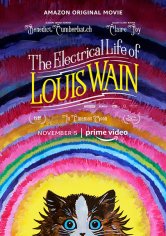
The Electrical Life of Louis Wain 2021
6.8
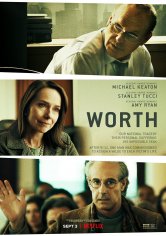
Worth 2020
7.1
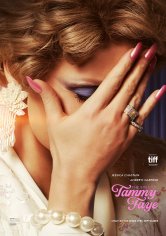
The Eyes of Tammy Faye 2021
9.6
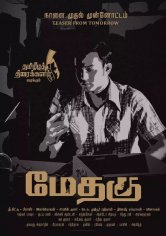
Methagu 2021
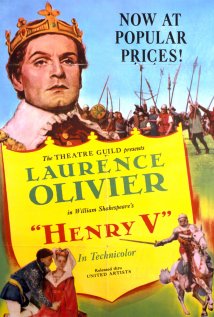

User Reviews
It's perhaps surprising that when people from a theatrical background turn to film directing, they tend to produce pictures that are purely cinematic and freed from staginess. This is the case with Laurence Olivier, as it was with Rouben Mamoulian and Orson Welles. Here, with his debut feature as director, Olivier not only created a landmark propaganda film, but also redefined the screen Shakespeare adaptation and established a new precedent of renowned actor turning competent director.
Shakespeare's play of Henry V was of course ideal for a wartime morale booster, featuring as it does heroic action, rousing speeches, historical parallels with the landings at France, a protagonist who is valiant yet warm and humane, as well as plenty of little extra touches such as exploring the psychology of the troops on the eve of battle and stressing the need for unity between English, Irish, Scotch and Welsh. It was also the perfect play for Olivier to test his ideas on how a Shakespeare play should be turned into a film. The chorus of Shakespeare's original text tells the audience that the great battles and courts can scarcely be contained on a stage and that you must "on your imaginative forces work". Using this idea as his starting point, Olivier begins the film with a recreation of a contemporary production of the original play at the Globe theatre, complete with backstage glimpses, bumbling actors and a rowdy Elizabethan audience. Then, as Leslie Banks' chorus commands the audience to "work your thoughts", the theatre disappears, and the action subtly opens out into larger sets. Eventually, we are transported to location with thousands of extras for the climactic battle scene.
This was not only a complete reworking of screen Shakespeare, it was part of a whole approach to cinema. Olivier's Henry V, although totally different in content, is stylistically in the same tradition as Michael Powell's The Red Shoes or the elaborate ballet sequences of MGM musicals, which also expand would-be stage performances into pure cinematic fantasy. The originator of this approach was probably Busby Berkeley, who also made the switch from stage to screen, albeit from the music hall to the role of choreographer for screen musicals. The musical sequences that Berkeley constructed for Warner Brothers musicals in the mid-1930s always begin with a stage production, but then turn into tour-de-forces of choreography, camera positioning and massive sets, all of which could never be contained or properly appreciated on a stage. Olivier is effectively doing the same thing with a Shakespeare play as Berkeley did with a dancing chorus line.
Of course, all this alone isn't what makes Henry V a great work. For a first-time director Olivier's eye is remarkably sharp. He keeps the action smooth in dialogue scenes by making use of long takes, and preferring to move the camera to change the framing rather than breaking the shot with a cut, often dollying in on a single actor to achieve a close-up. He's not quite experienced enough yet though to give these shots a really natural flow, and he doesn't really get the chance to show off his talents as a dramatic director as he would later in Hamlet and Richard III. Having said that, he does manage to give remarkable tenderness to Henry's soliloquy on the eve of battle and his courtship of Kate towards the end of the film.
The highpoint however is the impressive Agincourt battle sequence, which was influenced by the battle in Eisenste
Fmovies: Previous to this film, Laurence Olivier had only one experience with Shakespeare on the screen, 1936's As You Like It. It was not a work that Olivier was terribly proud of. He did determine right there that if he were to do Shakespeare again, he would have complete creative control. Olivier did just that, on this film and every other filmed adaption of the Bard that he was involved in.
Olivier's desire happily coincided with Winston Churchill's desire to make some good British propaganda for the war effort. Churchill was fond of what he called Shakespeare's "war plays" and Henry V definitely qualifies in that category. He gave Olivier whatever logistical help he needed and remember a war was on. Even to the extent of arranging with Eamon DeValera permission for Olivier to bring the entire Henry V crew to the Irish Republic so that the outdoor scenes could be filmed away from Nazi bombardment.
Olivier chooses an interesting method of introducing the play. It opens with a scene of 16th century London at the Globe Theatre at the opening night. The play begins with Leslie Banks as the Chorus reading the introduction and the first scenes are filmed as simply a photographed stage play. After that first scene at Henry V at his court, spitting defiance at the French herald and having his retainers go through an elaborate justification for his claim to the French throne. We then as the Chorus bids us have our imagination take flight until the end of the play when it returns to the stage this time with Henry V marrying the French princess and sealing his claim to their throne.
I believe what Olivier wanted to do was show the play through two sets of eyes. He wants the audience to imagine they are in Elizabethan England watching the events of a century before and know that things looked pretty grim then for England and they pulled out of it.
The battle scenes at Harfleur and at Agincourt are nicely staged and photographed. Olivier's Henry V is a strong and virile leader, convinced of the rightness of his cause and he has the confidence in himself as military leader to see it through. Kind of like the Prime Minister who was in office then.
Certainly in the Middle Ages the high point of English arms was at Agincourt. It was truly one lopsided victory, English long-bowmen against French knights. The French cavalry was truly decimated on that day and a lot of their nobility was killed. And the French were the betting favorites.
Seen today though it's a bit different. The Hundred Years War, and this was the second phase of it, was quite frankly a naked war of aggression by the English to obtain the French throne. In 1944 audiences thrilled to remember this impressive feet of arms by the English, but the reasons were kind of glossed over.
Still Henry V is an impressive motion picture and I'm sure it did what it set out to do, be a morale booster for the English public. Among other performers I liked in this were Robert Newton as the ancient Pistol and Leslie Banks as the chorus and Valentine Dyall as the Duke of Burgundy.
But I would wager that Charles DeGaulle was not invited to the premier showing of Henry V.
When I saw this movie at age 13 or so, I was terribly disappointed because it was clear that this is the third part in the story. Henry IV Part 1 and Part 2 come before this play, and they tell the story of Sir John Falstaff and his friendship with Prince Hal ( who is Henry V in this play.) The first two plays also introduce Nym, Bardolph, Pistol, and Mistress Quickly. Unfortunately, this play starts after Falstaff has been banished and Prince Hal has become King.
This play is a lot of fun, but it's very frustrating if you haven't read the earlier plays. There are so many poignant (or funny) moments that point backwards. Even the pretend audience at the beginning seems to feel that they want Falstaff back! The best acting moments in this movie are all scenes where the lower characters remember Falstaff and mourn his death.
Of course, there are some heroic battles and speeches in this movie, but looking back after forty years they don't seem as impressive as when I was 13. The great battle is actually over fairly quickly. And a lot of the later scenes drag, like when Captain Fluellen makes Pistol eat his leek. This is played as very bad slapstick when it's actually very violent and brutal in the play.
Henry V fmovies. "Henry V" is poetry within the historical context of English patriotic pageantry. As Shakespearean scholar J. Dover Wilson observed in a 1943 critique, it justifies and celebrates a well-ordered vision of British conservative values – respect for the monarchy and a rigid feudal class-system. And as Pauline Kael asserted in 1989, Shakespeare's text "is perhaps the greatest jingo play ever conceived."
At the beginning, a Prologue asks us to imagine "a kingdom for a stage, princes to act and monarchs to behold the swelling scene" rather than "the flat unraised spirits...on this unworthy scaffold." Laurence Olivier, who directed this 1944 film version, heeds the misgivings expressed in that Prologue. While his staging of "Henry V" begins within the enclosed intimacy of a studio-created Globe Theatre, acted before an appropriately attired Elizabethan audience, Olivier uses the medium of Cinema to physically "open up" the play as it progresses from scene to scene, increasingly taking advantage of elaborate studio scenery and lighting and mattes, ultimately using vast exterior locations for the climactic Battle of Agincourt.
Olivier, in the lead role, is a forceful King Harry, but his work and imagination behind the camera are stunning, especially for a first-time director. The humor of the fumbling "unraised spirits" who impersonate the roles of the Archbishop of Canterbury (Felix Aylmer) and the Bishop of Ely (Robert Helpmann) is an early surprise, as is the coarse high-jinks of Robert Newton's interpretation of Pistol, chewing up the scenery and everyone in sight. As a director, Olivier borrows from the conventions of the stage, but it isn't so much that he copies them; he transforms them. Thus, he shows us a fleet of miniature warships engulfed in an English Channel fog, a "narrator" superimposed against painted, moving backdrops, and (at the end) the bleak French postwar countryside – a zone of pillage, poverty, and heartbreak in the aftermath of battle.
This version of "Henry V" was made with a wartime audience in mind. (The 'V' in the title is a perfect symbolic reference to the times.) Here, the effete, overconfident Dauphin (Max Adrian) and other French nobles stand in for the Axis alliance; the common men who make up the motley army of archers and infantry are a parallel to the agents of 20th-century anti-authoritarianism. The French losses total about ten thousand – 8,400 of which are "princes, barons, lords, knights, squires,/And gentlemen of blood and quality." The English fatalities: only "five and twenty score." An overwhelming victory for the forces of medieval anti-Fascism.
The film precisely met the requirement to raise moral of Englishmen during the Second World War: it is cheering and inspiring. But in fact it is more than just a patriotic propaganda. Henry V, though made during the war, is an excellent beginning of the series of Olivier's Shakespearean films. I really like it as much as later Hamlet and Richard III. May be the play doesn't seem very distinguished when you read it, but the screen-version becomes exciting, complex and brilliant. It has the amusing beginning (clever allusion to medieval Shakespearean theatre), heroic main part (without unnecessary battle details) and touching happy ending (the scene of Henry wooing Princess Katharine moves me every time I watch it). Lord Laurence is so noble as the King Henry! You can really feel his inspiration and share his emotions. Whenever Olivier's a producer, it's his habit to focus the audience's attention mostly on the main character. Sometimes I think his selection of plays for filming was determined by the amount of time his hero must be on the stage. Well, to say the truth, it's perfectly justified! There never was and never will be any Shakespearean actor comparable to Laurence Olivier! His performance is superb. In the part of Henry the Fifth he is absolutely fascinating, far above any real monarch in dignity, nobility and attractiveness. In fact the whole film is fascinating and picturesque. Princess Katharine is very charming and adequate, and other actors are well chosen too. The way English actors pronounce Shakespearean text is always more natural and expressive than the way of any other nation's actors, distinguished as they may be. I dare say that Englishmen understand something about Shakespeare that we can't get. Anyone who truly estimates Shakespeare must love this film.
This is seriously fantastic stuff. As many others will know by now, I am a huge fan of Laurence Olivier's work, but this inspirational and revelatory performance surpasses all. The first and most important thing is the timing. Incredible!! Olivier managed to get the whole thing together in time for D-Day! (sorry, that was not quite relevant) The fact is, his portrayal of King Henry V had a deliberate purpose to it... he wanted to give England courage in the war they were fighting, just as King Harry had courage against the french.
Everything, the sets, the colours, all are so majestic and wonderfully theatrical. That's because Olivier did not want to keep his audience on the indifferent grounds of reality. For many in 1944, winning the war was something totally out of reality, just as it was so for the English at the battle of Agincourt. Olivier wished to transport his audience to the god-given victory, and transport them he did. "Once more unto the breach!" Even as a little fourteen-year-old viewer of Sir Laurence speaking these famous words this gave me the curious inspiration... the same that it gave to Winston Churchill sixty years ago. For me, I don't know what the inspiration was for. For Churchill, it was claiming victory in world war 2.
Whatever your taste, background, or personality; this film is inspirational, and recommended viewing for everyone. You would be missing something terrible if you did not see this pure patron of an actor grace the screen majestically with his regal inspiration.